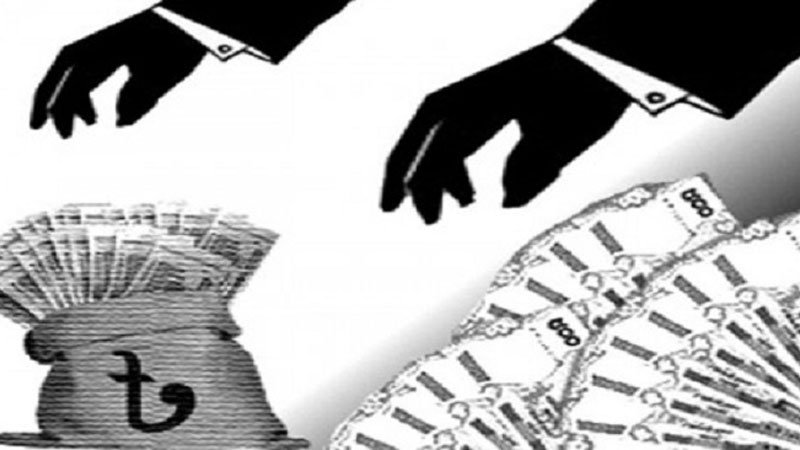Conditional black money whitening likely

Whitening of undisclosed income also known as black money might be allowed without fine if invested in productive industries, stock market and housing sector.
The decision might be announced in the upcoming budget session with a view to giving the economy, reeling from the existing coronavirus pandemic, a boost.
According to sources, the government considers that if black money is invested in business, the economy of the country might become stronger.
Black money is largely attributed to tax evasion, and its direct impact is the loss of government revenue. For the last five years, black money-holders have been allowed to whiten their assets by investing in residential buildings by paying a tax of 10 per cent on the amount invested, which for regular taxpayers is between 10 and 30 per cent.
However, the Anti-Corruption Commission (ACC) has the power to raise questions about the source of the funds.
It should be mentioned that the scope of whitening black money had been started from 1975. But, most of the black money holders were not willing to whiten their black money due to the various conditions.
According to the NBR, for the first time, Tk 2.75 crore in black money, was whitened during the army-backed government in 1975, immediately after the assassination of the Father of the Nation Bangabandhu Sheikh Mujibur Rahman.
Later, Tk 50.76 crore was whitened during the period from 1976 to 1981, Tk 45.89 crore, from 1982 to 1990, Tk 150.79 crore from 1991 to 1996, Tk 950 crore from 1997 to 2000, Tk 827 crore from 2001 to 2006, Tk 9,682 crore from 2007 to 2008, Tk 1,805 crore from 2009 to 2013 and Tk 856.30 crore from 2014 to 20017.
Meanwhile, official sources said, the government is now looking for ways to give full amnesty as the instrument has failed to achieve its objectives of raising revenue for the government while inducing investments, said an official of the finance ministry.
The government may also cut the corporate tax for the non-listed companies by 2.5 percentage points to 32.5 percent to give some breathing space to the companies after their operations were seriously impacted by the shutdown, and sales collapsed.
The government may increase the tax-free income limit for individual taxpayers after five years in fiscal 2020-21 to give relief to people in the lower-income bracket so that they can better manage the economic hardship brought on by the pandemic.
The tax-free income tax threshold may go up to Tk 3 lakh from Tk 2.5 lakh.
The income tax slabs may be rearranged as well. The rates of income tax now stand at 10 per cent to 30 percent, but it may be cut to 5 percent to 25 per cent in the next fiscal year.
Meanwhile, the government has responded positively to a National Board of Revenue (NBR) plea and set a lower target for fiscal 2020-21.
The massive plunge in revenue collection prompted the NBR to request the government to set a realistic target for the next fiscal year.
Now, the government may set a revenue mobilisation goal of Tk 301,000 crore for the upcoming fiscal year, down from Tk 330,000 crore initially planned, said the official of the finance ministry.
The NBR is expected to log about Tk 220,000 crore in the ongoing fiscal year, leaving the highest ever shortfall in history, largely owing to the massive fall in tax receipts caused by the pandemic and consequent stoppage of economic activities.
The collection, as projected by the NBR, would also fall below last year's total tax collection of Tk 223,892 crore, in an unprecedented development.
According to the NBR, the collection would not be more than Tk 250,000 crore in the next fiscal year, the NBR said.
As the collection is going to decline and be far below the target in fiscal 2019-20, this would be the ninth consecutive year that the NBR would miss both actual and revised collection goals set by the government to finance its overall fiscal plans.
The revised collection target of Tk 300,500 crore would be impossible to achieve this fiscal year as the effect of the coronavirus-induced lockdown on domestic and external demand, businesses and incomes prolonged, Muneem has said.
The projection comes at a time when the NBR posted just a little over 1 per cent growth in tax collection at Tk 175,000 crore in the first ten months of the fiscal year.
And the slowing collection was the result of negative growth in April, the first month of the shutdown and stay-at-home order enforced by the government to flatten the curve on the deadly virus.
Revenue collection crashed more than 55 per cent in April, revealing the massive hit the Bangladesh economy has taken from the coronavirus outbreak in the country.


